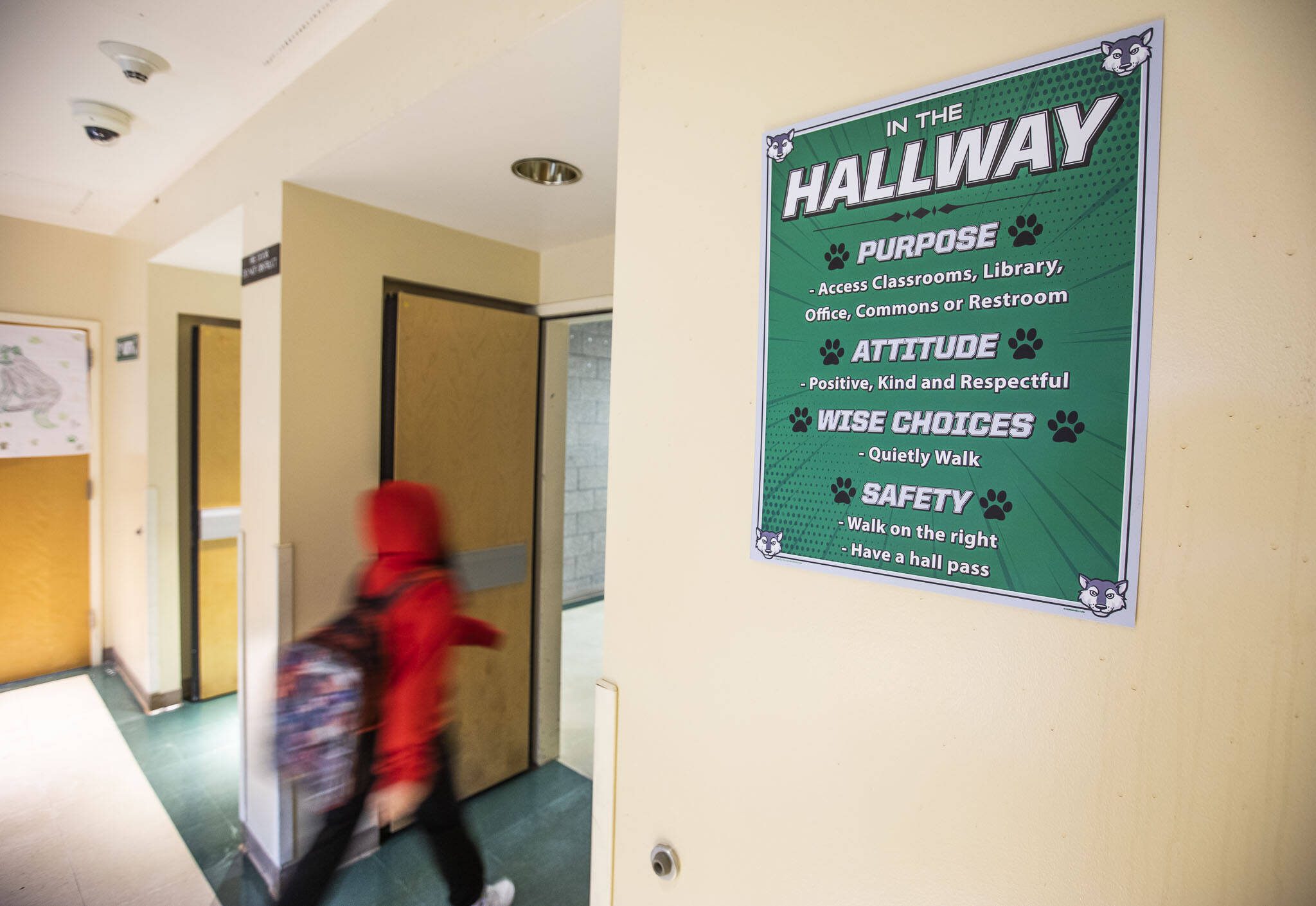Washington lawmakers are on the cusp of eliminating a special education funding cap, which critics said was straining school finances, hurting students, and putting the state at risk of a major lawsuit.
On a 97-0 vote, the House amended, then passed Senate Bill 5263 on Wednesday to put Washington, for the first time, on a course to fully fund special education in its public schools.
It also adjusted two other funding levers in the bill to drive more dollars for special education to the state’s 295 school districts. All told, roughly $870 million more will be sent out over the next two budgets. That sum is a compromise with the Senate, which wanted to spend closer to $2 billion.
Rep. Gerry Pollet, D-Seattle, who called the cap “unconscionable and maybe unconstitutional,” said its elimination is “a historic achievement.” It commits the state to amply fund the education of every child with a disability, he said.
Ditching the cap “is the very first step to saying we’re going to fully fund special education. This is going to absolutely help our schools,” said Rep. Travis Couture, R-Allyn, who has three children with individualized education plans, or IEPs — plans developed for every public school student who needs special education services.
“It represents something we should all be proud of,” he said. Couture urged his colleagues to guard against any weakening of the legislation in the final stages of budget talks.
Also Wednesday, the House passed a Senate bill to send additional dollars to districts to cover materials, supplies and operating costs — MSOC in state budget lingo. These costs, which cover non-employee-related expenses tied to a district’s daily operations, have surged in recent years.
“This is a bill that will literally keep the lights on in schools,” said Rep. April Berg, D-Mill Creek, a former school board member.
The House amended, then passed Senate Bill 5192 on an 85-12 vote. It would boost the amount of state funding per student for MSOC to $1,614, an increase of $35. An additional $214.94 is provided for each high school student. That’s four dollars more than the current rate.
Couture opposed this legislation, saying it’s too small an increase to help the most needy districts.
“I don’t think an extra $35 will keep the lights on,” he said.
Cap would be removed
Special education is the area where the gap is largest between what districts receive from the state and what they pay for with local dollars.
In the 2022-23 school year, districts spent $590 million of local levy receipts to make up the difference, according to a performance audit issued in January by the Joint Legislative Audit and Review Committee.
Washington uses two key mechanisms for determining what a district receives.
First, there is the cap on the percentage of a school district’s student population that can receive extra dollars for special education services.
Under current law, the state only provides additional funding for up to 16% of a district’s student population. In other words, if 20% of a district’s population requires special education services, the district cannot get additional money for the remaining 4%.
Second, the state distributes an amount of money for each student enrolled in a school, plus additional dollars for each special education student under a formula known as the multiplier.
Senate Bill 5263 removes the enrollment cap and increases the multiplier to send more dollars to districts.
It also simplifies the formula used by the state to determine how much will be provided per student. And it makes it easier for districts to qualify for additional special education dollars through a safety net program run by the Office of Superintendent of Public Instruction.
Senate Majority Leader Jamie Pedersen, D-Seattle, and Senate Minority Leader John Braun, R-Centralia, are the bill’s co-sponsors.
Pedersen, prior to the Senate vote, acknowledged the state’s tight budget situation this year but said Washington’s Constitution “is very clear that funding basic education is our paramount duty.”
“The fact that it is expensive doesn’t change that on the ground we’ve got kids with special needs who are in our charge and are relying on us to make sure that they get the education to which they’re entitled,” he said.
Initially, the House upped the multiplier and safety net but left the enrollment cap in place.
Pollet continued to press for the cap’s erasure as he has for the past 13 years. This time he prevailed. Changes made Wednesday will pump out $870 million to districts over the next four fiscal years, he said.
If House Bill 2049 passes, it will be more, he said.
That bill would allow an increase in annual property tax growth from the current 1% cap to the combined rate of population growth plus inflation within a taxing district, not to exceed 3%. This would apply to the state’s property tax, also known as the common schools levy.
The bill would also make other changes that could help districts receive more taxpayer dollars.
A fiscal analysis estimates that uncapping the state property tax would bring in an additional $200 million in the next biennium and $618 million in the 2027-29 budget. School districts collectively could raise another $900 million locally over four years. The legislation is slated to be voted on Friday in the House Finance Committee.
This story was originally published in the Washington State Standard.
Talk to us
> Give us your news tips.
> Send us a letter to the editor.
> More Herald contact information.

























